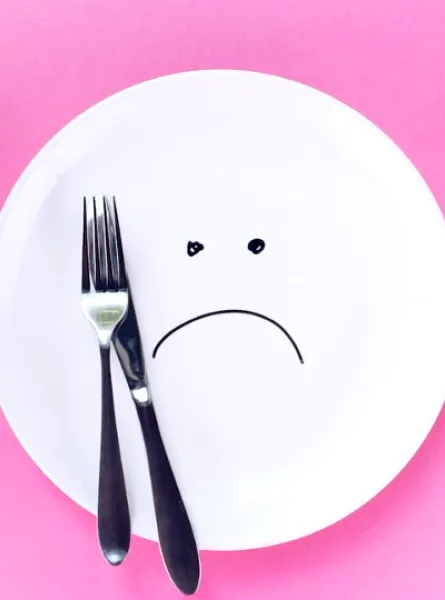
What is an Eating Disorder?
An eating disorder is a mental illness in which attitudes and behaviours towards food, weight, and body image are disrupted. This condition needs to be treated to prevent the related social, physical, and psychological consequences.
It can be difficult to distinguish among the listed eating disorders. Here is a brief distinction between the three main eating disorders:
Anorexia Nervosa
Anorexia is characterized by a severe voluntary restriction of food intake caused by a phobia of gaining weight. The quantities of food taken are greatly reduced. There is a distortion in the person's perception of their body image. The restriction leads to weight loss that becomes dangerous to the person's physical health and life. They may avoid certain social situations (e.g., meals with family or friends) and isolate themselves to keep control over their weight.
Bulimia
A person suffering from bulimia experiences periods of food compulsions at least once a week over a minimum period of three months. During these compulsions, they ingest a large quantity of food over a limited period, much more than most people would ingest during the same period.
Following these bouts, the person resorts to purgative and compensatory behaviours, such as induced vomiting, use of laxatives, diuretics or enemas, fasting, and excessive physical exercise.
Self-esteem is also strongly influenced by weight and body image.
Binge Eating Disorder
The main difference between bulimia and binge eating disorder is that binge eating disorder is not accompanied by inappropriate compensatory behaviours. Thus, there are bouts of binge eating with a feeling of loss of control on average once a week over a period of three months. The crises are a source of suffering and guilt. This is the most common eating disorder.
Recovering from an Eating Disorder
Fortunately, it is possible to fully recover from an eating disorder. Several dietary approaches (normalization of eating, intuitive eating, etc.), pharmacological, and psychological (cognitive-behavioural theory, mindfulness-based cognitive theory, etc.) are effective.
Don't hesitate to consult health professionals (psychologist, dietitian, doctor, etc.) to improve your relationship with food and start living fully again.
Lastly, here is a list of resources in Quebec and elsewhere in Canada that help people living with an eating disorder: https://anebquebec.com/services
References: http://www.douglas.qc.ca/info/troubles-de-l-alimentation-qu-est-ce-que-c-est https://www.nimh.nih.gov/health/publications/eating-disorders/index.shtml Summary of the training "Non-restrictive eating behaviour disorders" from November 2, 2017, at the Montreal University Institute of Mental Health (summary for Nutrition Team made by Krystel Dubé Dt.P)





